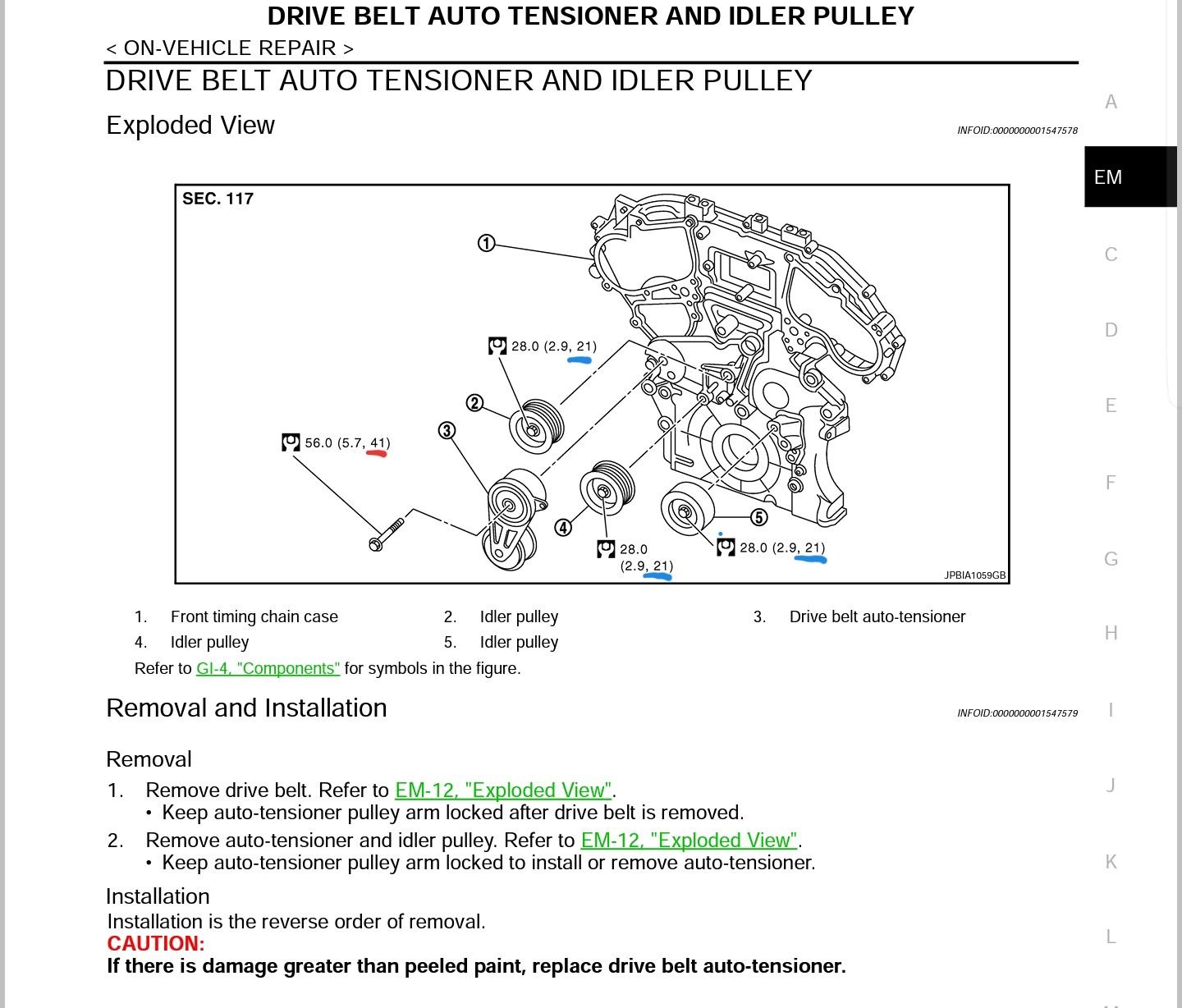As an Amazon Associate, I earn from qualifying purchases at no extra cost to you.
What’S the Torque Specification for an Idler Pulley?
The torque specification for an idler pulley typically ranges from 35 to 45 foot-pounds. Ensuring the right torque specification for the idler pulley on your vehicle is crucial for proper function and longevity of the pulley.
Incorrect torque can lead to premature wear and potential damage to the pulley assembly, affecting the overall performance of the vehicle. It is recommended to consult the manufacturer’s specifications or a professional mechanic to ensure the accurate torque is applied during installation or replacement of the idler pulley.
By adhering to the recommended torque specification, you can maintain the optimal performance of the idler pulley and prevent potential issues down the road.
Factors Affecting Torque Specification
Factors such as belt tension and pulley alignment impact idler pulley torque specification. It is crucial to follow manufacturer guidelines for optimal performance and longevity of the idler pulley system.
Type Of Idler Pulley
An idler pulley’s type determines its torque specification, affecting the force required for proper function.
Material Of Idler Pulley
The material of an idler pulley impacts the torque needed, ensuring durability and efficient performance.

Credit: rennlist.com
Types Of Idler Pulleys
The idler pulley is an essential component of the vehicle’s serpentine belt system, responsible for maintaining proper tension and a smooth operating belt. There are two main types of idler pulleys that are commonly used in vehicles: the smooth idler pulley and the grooved idler pulley.
Smooth Idler Pulley
The smooth idler pulley is a simple pulley that is typically used to guide the belt and maintain tension. It does not have any grooves or ridges on its surface and relies on the flat surface to support the belt. This type of idler pulley is commonly found in various automotive applications, including the serpentine belt system.
Grooved Idler Pulley
The grooved idler pulley is designed with grooves or ridges on its surface to precisely fit with the grooves of the belt. It ensures more precise belt alignment and prevents slippage. This type of idler pulley is commonly used in high-performance and heavy-duty applications where precise belt alignment is critical for optimal performance and longevity.
Material Considerations
When it comes to idler pulleys, one of the crucial aspects to consider is the material used in its construction. The choice of material can have a significant impact on the performance and longevity of the idler pulley. Let’s take a closer look at the material considerations for metal and plastic idler pulleys:
Metal Idler Pulley
Metal idler pulleys are commonly made from durable materials such as steel or aluminum. These materials offer superior strength and resistance to wear, making them suitable for heavy-duty applications.
Advantages of Metal Idler Pulleys:
- High durability
- Excellent wear resistance
- Well-suited for heavy-duty use
Torque Specification for Metal Idler Pulley:
| Material | Torque Specification (ft-lbs) |
|---|---|
| Steel | 35-45 |
| Aluminum | 20-30 |
Plastic Idler Pulley
Plastic idler pulleys are lightweight and cost-effective, making them suitable for less demanding applications. They are often constructed from materials such as nylon or reinforced plastic.
Advantages of Plastic Idler Pulleys:
- Lightweight
- Cost-effective
- Low friction
Torque Specification for Plastic Idler Pulley:
| Material | Torque Specification (ft-lbs) |
|---|---|
| Nylon | 10-15 |
| Reinforced Plastic | 15-20 |

Credit: www.myg37.com
Credit: forum.ih8mud.com
Conclusion
Ensuring the correct torque specification for an idler pulley is crucial for optimum performance. Proper maintenance and regular checks can prevent costly repairs down the line. By following the manufacturer’s guidelines, you can extend the lifespan of your idler pulley and keep your vehicle running smoothly.


